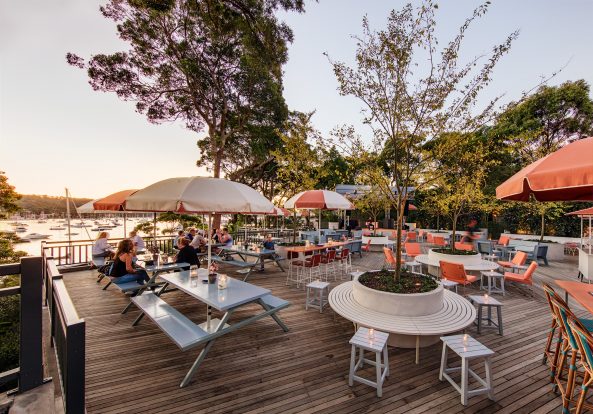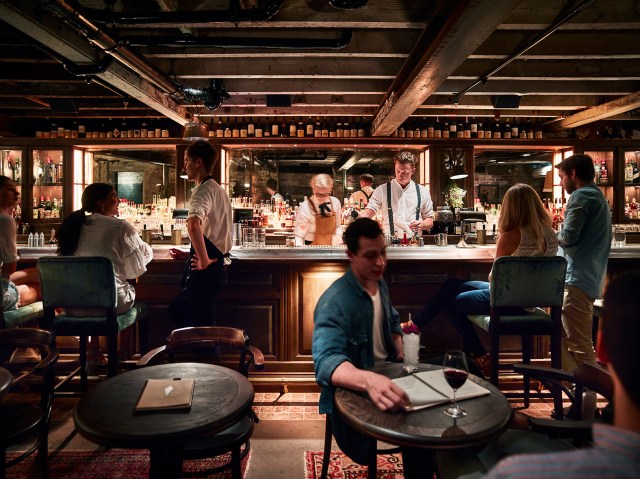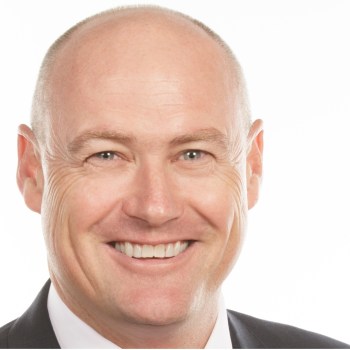Image: Merivale venue Charlie Parker’s
Justin Hemmes’ Merivale group is just one of a number of hotel operators facing potential class actions, with up to 5,000 staff allegedly underpaid or unpaid at Merivale alone.
Justin Hemmes’ under-fire Merivale group is facing a potential class action lawsuit as the fallout from staff collective agreements continues. Merivale has denied the class action claims.
Lawyers currently representing at least 50 claimants have revealed their allegations against Merivale and are seeking redress of $15m-25m to recover underpayments, along with pecuniary damages claims for up to $728,000.
Adero principal lawyer Rory Markham also confirmed to Australian Hotelier his firm are investigating a number of other pub operators across Australia, alleging similar practices.
“Indeed we are,” said Markham. “There are a large number of operators that have similar practices to Merivale. We’ll be expecting announcements in the next three-months cycle of other operators.”
Explaining the withheld announcements, Markham said: “We specialise in looking at industry-wide underpayments but we can’t name other entities until further due diligence is completed.”
In relation to the Merivale claim, Markham added:
“We’re also investigating underpayments in connection with salaries of chefs and so forth and we’re on notice of a large practice of forcing individuals to work hours but not to pay those hours.” Markham did not substantiate those allegations further.

In detailing the claims against Merivale, Markham alleged:
“Merivale has always had a competitive advantage because of the way it entered into pre- Fair Work Act or current IR law enterprise or collective agreements. What that means in basic terms is it found a way to pay staff a certain amount of money that was below the current minimum rates of pay, as we see it. It purported to do that on the basis it had an agreement that existed prior to 2009 and lawful then, but if made in the current day would be significantly below minimum rates and would be prohibited. We’re dealing with what they would call a zombie agreement. Our cause of action is really saying that when the IR system came into existence post 2009, there was an obligation to ensure people were paid minimum rates of pay and that Merivale has failed to keep those rates of pay up to minimum standards.”
Responding to the threat of the class action, a Merivale spokersperson said:
“Merivale is confident all staff have been paid in full and it has been compliant with all relevant legal standards and the applicable industrial instruments.
“With regard to a potential class action, given the absence of any underpayment, the only winners out of any proposed class action, as always, will be lawyers and litigation funds.”
In detailing the claim, Markham confirmed claims were time-limited to six years before 4 March 2019 and Adero expected the claimant count to grow:
“We have taken registrations in the order of 50-plus,” said Markham, “but we anticipate the class will naturally cover individuals in the range 3,500-5,000 because of the natural churn of staff in the business. Currently they [Merivale] report at least 3,000 staff covered by this agreement.”

Asked whether Justin Hemmes would personally be named within the claim, Markham declined to name individuals, but said: “It’s a claim that basically there was an employer and a series of accessories that were knowingly involved.”
Elaborating on Merivale’s position, its spokesperson said:
“Merivale was comprehensively audited by the independent regulator, the Fair Work Ombudsman, in 2018 as part of the Hospitality Compliance Campaign and on 13 July 2018 the Ombudsman determined that Merivale was in full compliance with all of its legal obligations. This demonstrates that any proposed action has no legal basis.
“Merivale also continually undertakes internal audits and is confident that there is no systemic underpayment. In fact, the type of claim ventilated in media reports is not about systemic underpayments but rather is based on a creative, novel and strained interpretation of the industrial instrument, which is contrary to the Fair Work Ombudsman’s interpretation.
“A proposed class action is speculative and could involve current and former employees in a long drawn out and expensive legal action which could take years. Merivale has encouraged any current or former employee who has any questions or concerns whatsoever to contact Kate Tones (Group People Experience Manager) at hr@merivale.com where any queries can be dealt with confidentially and within a guaranteed 14 days.
“It is also important to address any suggestion that Merivale’s ongoing business is in any way challenged by the move to the new relevant awards. As noted in Merivale’s submission to Fair Work, it is correct that the transition to awards will require Merivale to undertake a review of the effect of the transition on its business.
“This review will focus on updating operational arrangements to reflect the new award conditions, by way of example, an assessment of shifts and rostering arrangements in certain venues at certain times/days of the week, how staff can move between venues within shifts and how we can accommodate many casual staff who have individual shift requests that the new award doesn’t contemplate or allow.”
Responding to media suggestions that some of Merivale’s venues may become unviable, Merivale’s spokesperson said:
“To be clear, these are in-venue administrative and operational reviews and are not assessments as to the ongoing financial viability of any individual Merivale venue or the business as a whole.
“We would also like to clarify that everything Merivale is doing to adapt its business to the new award arrangements are part and parcel of operating a successful business which employs circa 3,000 staff.”



